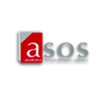Research Article
Issue Editorial Board



Aim & Scope
The Journal of Family, Counseling and Education aims to publish the original scientific studies prepared in the fields of family, family counseling, sexual counseling, education, psychology, psychotherapy, guidance and psychological counseling and to share them over the Internet for the benefit of the relevant persons.
Journal of Family, Counseling and Education (JFCE) publishes research related to all aspects of family, counseling, and education. This research should inform researchers, practitioners, program developers, and policy-makers. Considered topics and approaches include:
• Empirical studies based on quantitative or qualitative methodologies
• Targeted reviews of areas related to family, counseling, and education
• Scale development studies
• Cross-cultural research
• Intervention and counselling evaluations
• Articles that facilitate policy development in the related area.
Author Guidelines
For manuscript submission:
In taking a step toward expediting the publication process, JFCE uses a web-based submission and double-blind peer-review. There is no article processing or submission charge in JFCE. If you have not already created an account, create an account(register) for yourself in the system. You can monitor the progress of your manuscript throughout the review process by logging the system and check. JFCE employs blind review policy. Therefore, the author's (authors’) name(s) and affiliation should not appear on any part of the article. Prepare your manuscript and illustrations in appropriate format, according to the instructions given at author guidelines.
Evaluation and Peer-review process
The JFCE journal evaluate the studies conducted in English language. Articles to be submitted to JFCE should be prepared in accordance with journal writing rules. Submitted manuscripts are reviewed by the editor primarily according to purpose, subject and writing rules. The manuscript is evaluated by the field editor in the second stage. The articles found appropriate by the editor and the field editor are taken into the evaluation process. JFCE employs blind review policy. Therefore, the author's (authors’) name(s) and affiliation should not appear on any part of the article. The manuscripts taken in the evaluation process are sent to two different reviewer that expert on the subject. If the opinions of the reviewers on the manuscript are difference of opinion, a third reviewer will be consulted. The reviewer evaluation process is up to 90 days. Reviewers have no conflict of interest. Reviewed articles treat confidentially prior to their publication.
Editor based on the results of the reviewer evaluation reports;
May accept the manuscript,
May reevaluated the manuscript after it has been arranged in accordance with the particulars specified in the reviewer reports,
May decides to reject work.
Authors' responsibilities
- All authors have significantly contributed to the research
- All authors are obliged to provide retractions or corrections of mistakes, in case of detection
- List of references should be provided by authors
- Information on financial support should be provided by authors
- Forbidden to publish same research in more than one journal
Author Guidelines:
The following writing and referencing rules are to be taken into consideration;
1- The manuscripts sent to the journal are to be written in MS WORD. The graphics and photos are to be functional in Windows environment.
2- The manuscripts are not to be any longer 7500 words, including the Abstract and References.
3- Manuscript is to be written in ‘Palatino Linotype’ typeface with 9 font size with one and a half space.
4- Abstract section must be less than 200 words. It is to include aim, method and the findings of the study.
5- Key words for the study composed of at least 3 and maximum 8 words are to be written under the abstract.
6- In Tables, Figures, Picture and Graphics etc., the manuscripts sent to the journal are to observe the format in the latest publication of the American Psychology Association.
7- In referencing, the latest publication of the American Psychological Association will be used as a basis.
8- In studies which require decision made by ethical board, endorsement of ethical board is to be taken and is to be documented if needed. Universally accepted ethical rules are to be observed.
Makale gönderimi
Yayın sürecini hızlandırmak için JFCE web tabanlı ve çift-kör hakem değerlendirmeyi destekleyen bir sistem kullanılmaktadır. Henüz bir hesap oluşturmadıysanız, sistemde kendiniz için bir hesap (kayıt) oluşturun. İnceleme süreci boyunca makalenin ilerleyişini sisteme giriş yaparak kontrol edebilirsiniz. JFCE kör inceleme politikası kullanmaktadır. Bu nedenle, yazarın (yazarların) adları ve bağlantıları makalenin herhangi bir bölümünde görünmemelidir.
Değerlendirme
JFCE dergisinde İngilizce dillerinde hazırlanan çalışmalar değerlendirme süreçlerine alınmaktadır. JFCE dergisine gönderilecek makaleler dergi yazım kurallarına uygun olarak hazırlanmalıdır. Gönderilen çalışmalar Editör tarafından öncelikle amaç, konu ve yazım kurallarına göre incelenmektedir. Çalışmalar ikinci aşamada alan editörü tarafından değerlendirilir. Editör ve alan editörü tarafından uygun bulunan makaleler değerlendirme sürecine alınır. Değerlendirme sürecine alınan çalışmalar konu ile ilgili uzman en az iki hakeme gönderilir. Eğer hakemlerin raporlarında çalışma ile ilgili görüş ayrılığı söz konusu olursa, üçüncü bir hakemin görüşüne başvurulur. Hakem değerlendirme süreci en çok 90 gündür. Hakemlerin çıkar çatışması yoktur. İncelenen makaleler yayınlanmadan önce gizli tutulur.
Hakem değerlendirme raporlarının sonuçlarına dayalı olarak editör;
· Çalışmanın kabulüne,
· Çalışmanın, hakem raporlarında belirtilen hususlara göre düzenlendikten sonra yeniden değerlendirmeye alınabileceğine veya,
· Çalışmanın reddine karar verir.
Yazarların Sorumlulukları
- Tüm yazarların araştırmaya önemli ölçüde katkıda bulunmuş olmaları gerekir
- Tüm yazarlar, tespit edilmesi durumunda hataları düzeltmekle yükümlüdür.
- Kaynak listesi yazarlar tarafından sağlanmalıdır
- Mali desteğe ilişkin bilgiler yazarlar tarafından belirtilmelidir.
- Dergiye değerlendirilmek üzere gönderilen çalışma aynı anda birden fazla dergiye gönderilmemiş olmalıdır.
Makale yazım kuralları
Aşağıdaki yazı ve referans kuralları dikkate alınmalıdır.
1- Dergiye gönderilen yazılar MS WORD'de yazılacaktır. Grafik ve fotoğraflar Windows ortamında işlevsel olmalıdır.
2- Yazılar, Özet ve Referanslar dahil olmak üzere 7500 kelimeyi geçmemelidir.
3- Makale, 1,2 satır boşluğuna sahip 9 puntolu ‘Palatino Linotype’ yazı tipinde yazılmalıdır.
4- Özet bölümü 200 kelimeden az olmalıdır. Amacı, yöntemi ve çalışmanın bulgularını içermelidir.
5- En az 3 ve en çok 8 kelimeden oluşan çalışmanın anahtar sözcükleri, özet altında yazılmalıdır.
6- Tablo, şekil, resim ve grafik vb. öğeler, dergiye gönderilen aday çalışma içinde, Amerikan Psikoloji Derneği'nin son yayınındaki formatı takip etmelidir.
7- Referans göstermede Amerikan Psikoloji Derneği'nin en son yayını temel olarak kullanılacaktır.
8- Etik kurulun kararını gerektiren çalışmalarda etik kurulun onaylaması ve gerektiğinde belgelenmesi gerekmektedir. Evrensel olarak kabul edilen etik kurallara uyulmalıdır.
Ethical Principles and Publication Policy
Publication ethics
· Publishers and editors take reasonable steps to identify and prevent the publication of papers where research ethic misconduct has occurred.
· In no case a publisher or editors encourage ethics misconduct, or knowingly allow such misconduct to take place.
· In the event that a journal’s publisher or editors are made aware of any allegation of research misconduct the publisher or editor deal with allegations appropriately.
· The journal have guidelines for retracting or correcting articles when needed.
· Publishers and editors can be publish corrections, clarifications, retractions and apologies when needed.
· The author(s) warrant that the manuscript submitted is his/her/their own original research.
· All participated authors in this work take public responsibility and have approved that the manuscript has not been sent any other journal for publication.
· Review process cannot begin in case of failure or missing any of the requirements mentioned in this journal.
· The submitter must provide and maintain all requirements during the evaluation process.
· It should be made sure that other individuals shown as co-authors have contributed to the research. It is contrary to the scientific ethics to add some, who are not academic contributors to the article, as co-authors or to put in order co-authors with non-academic criteria such as title, age, and gender regardless of the order of contribution.
· It is assumed that authors who submit articles to the journal read and accept the publishing and writing principles of the journal and the writers are deemed to have committed themselves to these principles.
· Citations and bibliography should be complete and realistic.
· Author commits all conditions by sending the manuscript.
· All matter included in the manuscript does not violate any existing copyright rules and any intellectual property rights of any person or entity.
· The manuscript meets ethical standards applicable to the research discipline.
· All peer review publications will be refereed in double-blind review process by at least two reviewers with expertise in the relevant subject area. Book, Software and Website Reviews will not be reviewed, but the editors reserve the right to refuse or edit review.
· Authors and editors should take into account the criteria of Scientific Research and Publication Ethics Directive specified by the Higher Education Council, the International Council of Medical Journal Editors (ICMJE), and Committee on Publication Ethics (COPE).
Plagiarism Policy
· During review process we use iThenticate plagiarism software. The authors should scan with iThenticate plagiarism or other plagiarism software of their manuscripts before submitting.
· About plagiarism, we act based on flow charts and workflows determined in COPE.
Open Access Policy
This journal provides immediate open access to its content, on the principle that making research freely available to the public supports a greater global exchange of knowledge.
Yayın Eğiti
- Yayıncılar ve editörler, araştırma etiği suistimalinin meydana geldiği makalelerin yayınlanmasını tespit etmek ve önlemek için makul adımlar atar.
- Hiçbir durumda bir yayıncı veya editörler etik suistimalleri teşvik etmez veya bilerek bu tür suistimallerin gerçekleşmesine izin vermez.
- Bir derginin yayıncısı veya editörlerinin, herhangi bir araştırma görevi kötüye kullanma iddiasından haberdar edilmesi durumunda, yayıncı veya editör, iddiaları uygun şekilde ele alır.
- Dergi, gerektiğinde makaleleri geri çekmek veya düzeltmek için yönergelere sahiptir.
- Yayıncılar ve editörler gerektiğinde düzeltmeler, açıklamalar, geri çekmeler ve özürler yayınlayabilir
Price Policy
Journal of family, Counseling and education (JFCE) is blind peer review, open access online journal. There is no article processing or submission charge in JFCE.
Indexes
Journal Boards
Editor-in-Chief
EDITORS
Lisans ve yüksek lisans eğitimimi Sakarya Üniversitesi Rehberlik ve Psikolojik Danışmanlık programında, doktoramı ise Düzce Üniversitesi Rehberlik ve Psikolojik Danışmanlık programında tamamladım.


























